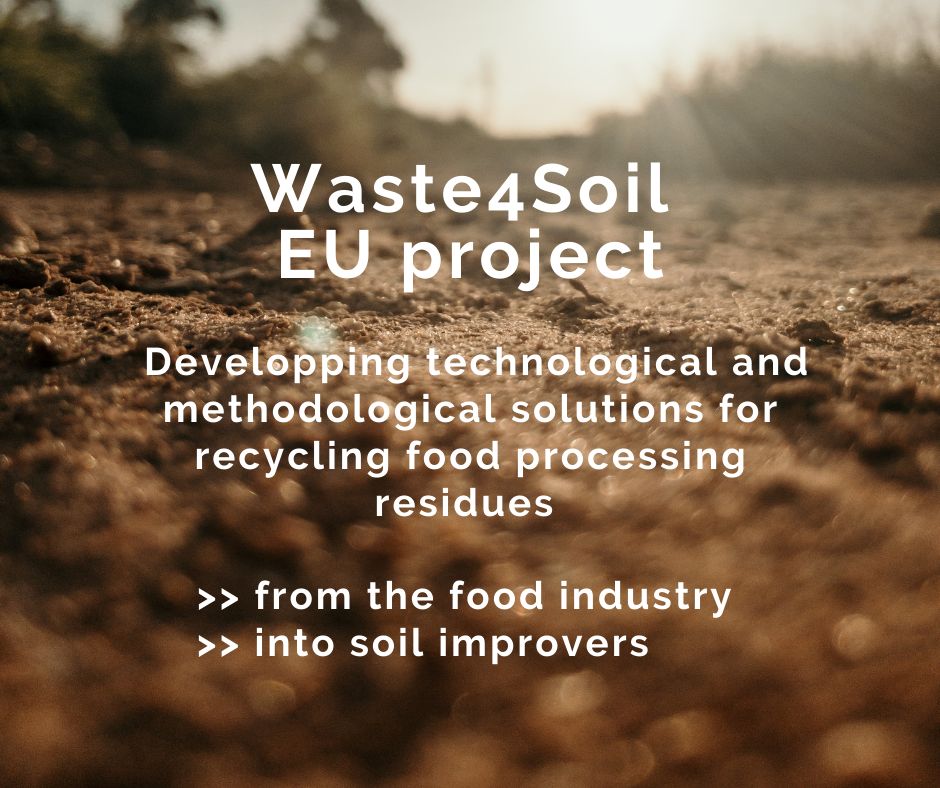KOTO Company is one of 28 partners from Europe participating in the project “Turning food waste into sustainable soil improvers for better soil health and improved food systems – Waste4Soil.” The project aligns with our company’s strategic direction, including the development of soil improvers or fertilizers from digestate (a by-product of anaerobic waste treatment) based on food waste.
Searching for solutions for food waste recycling
The four-year project, starting on June 1st, aims to develop ten technological and methodological solutions for recycling residues generated during food processing. These residues will be transformed into soil improvers or fertilizers, contributing to improved soil health and higher yields of target crops.
Throughout Europe, seven Soil Health Living Labs will be established under the project to monitor soil health. These labs will examine eight types of residues generated from the processing of various foods (meat, fish, dairy products, cereals, olive oil, wine, fruits, vegetables, and processed food). One test environment for plant cultivation under well-controlled conditions is planned in Slovenia for Slovenian project partners, which includes KOTO Company, the Biotechnical Faculty of the University of Ljubljana, and the Scientific Research Centre Koper.
Mitigation of the effects of climate change
The project also focuses on disseminating knowledge and developing solutions for restoring soil health and functions, enabling the full utilization of soil potential to mitigate the effects of climate change. The results will directly contribute to the success of the European Commission’s “Green Deal” and its ambition for progress in climate, biodiversity, and sustainable food.

